Black Studies Guide
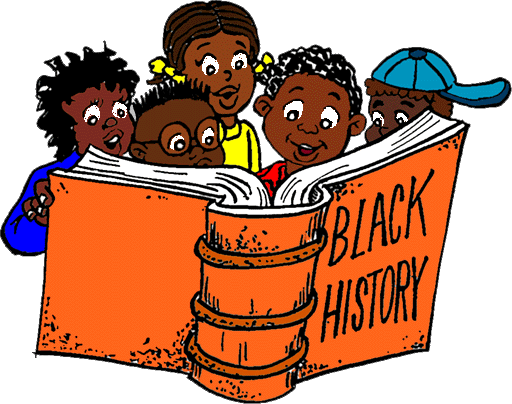
Kings & Queens of Africa
Thutmose III
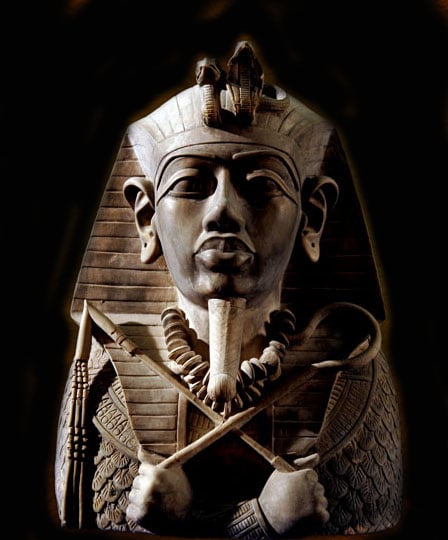
Pharaoh of Egypt 1504 to 1450 BC
Thutmose III was a member of one of the greatest families in the history of African royalty. A family which laid the basis for the 18th Dynasty of ancient Egypt. But it was his family which also was the source of his greatest frustration, as he always believed he should have come to power before his sister, Hatshepsut, and was angry over this for most of his life. Ironically, though, it was the assignments she gave him which not only helped in his rise to power, but also helped him learn and understand the responsibilities of his royal position. Thutmose III eventually overcame his anger to become one of the most important Pharaohs in Egyptian history. A man who will be remembered as a great warrior who strengthened the sovereignty of Egypt and extended its influence into Western Asia.
IMHOTEP
The world's first known geniusImhotep was the royal advisor to King Zoser during the Third Dynasty of Kemet. Regarded as the world's first recorded multi-genius, Imhotep was an architect, astronomer, philosopher, poet and physician. As an architect he was responsible for designing the Step Pyramid and the Saqqara Complex. During his lifetime he was given a host of titles, among them:Chancellor of the King of Lower Kemet, the First after the King of Upper Kemet, High Priest of Heliopolis and Administrator of the Great Palace. As a physcian, Imhotep is believed to have been the author of the Edwin Smith Papyrus in which more than 90 anatomical terms and 48 injuries are described. This is well over 2,200 years before the Western Father of Medicine Hippocrates is born. Some 2,000 years after his death, Imhotep was deified by the inhabitants of Kemet and was known later as Asclepius, God of Medicine, to the Greeks. His very name, Im-Hotep, translates as the Prince of Peace. His tomb near Memphis became a sacred place and the site of pilgrimages for those seeking a cure. As a philosopher and poet, Imhotep's most remembered phrase is: "Eat, drink, and be merry for tomorrow we shall die." There still remain many bronze statuettes, temples and sanatoria bearing his name, as is depicted in the picture of the statue at the left.
Affonso I
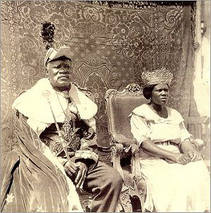
King of the Kongo 1506 to 1540
Affonso I was a visionary, a man who saw his country not as a group of separate cultures, but as a united nation fully equipped with advanced knowledge and technology. Affonso I was the first ruler to modernize Africa on a grand scale. Because he saw progress as a healthy mix of physical and spiritual development, Affonso made it possible for his people to practice new skills in masonry, carpentry, and agriculture. He also streamlined Kongo politics, established one of the most modern school systems in Africa, and later became the first ruler to resist the slave trade.
Sunni Ali Ber
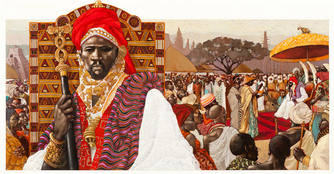
King of Songhay 1464 to 1492
When Sunni Ali Ber came to power, Songhay was a small kingdom in the western Sudan. But during his twenty-eight-year reign, it grew into the largest, most powerful empire in West Africa. Sunni Ali Ber built a remarkable army and with this ferocious force, the warrior king won battle after battle. He routed marauding nomads, seized trade routes, took villages, and expanded his domain. He captured Timbuktu, bringing into the Songhay empire a major center of commerce, culture, and Moslem scholarship.
Idris Alooma
Sultan of Bornu 1580 to 1617
For two centuries before Idris Alooma became Mai (Sultan) of Bornu, Kanem was a separate land whose people had been driven out by their nomadic cousins, the Bulala. It took one of Africa's most extraordinary rulers to reunite the two kingdoms. Idris Alooma was a devout Moslem. He replaced tribal law with Moslem law, and early in his reign, he made a pilgrimage to Mecca. But the trip had as much military as religious significance, for he returned with Turkish firearms and later commanded an incredibly strong army. They marched swiftly and attacked suddenly, crushing hostile tribes in annual campaigns. Finally Idris conquered the Bulala, establishing dominion over the Kanem-Bornu empire and a peace lasting half a century.
Shaka
King of the Zulus 1818 to 1828
A strong leader and military innovator, Shaka is noted for revolutionizing 19th century Bantu warfare by first grouping regiments by age, and training his men to use standardized weapons and special tactics. He developed the "assegai," a short stabbing spear, and marched his regiments in tight formation, using large shields to fend off the enemies throwing spears. Over the years, Shaka's troops earned such a reputation that many enemies would flee at the sight of them. With cunning and confidence as his tools, Shaka built a small Zulu tribe into a powerful nation of more than one million people and united all tribes in South Africa against Colonial rule.
Taharqa/Taharka
King of Nubia 710 to 664 BC
At the age of sixteen, this great Nubian king led his armies against the invading Assyrians in defense of his ally, Israel. This action earned him a place in the Bible (Isaiah 37:9, 2 Kings 19:9). During his 25-year reign, Taharqa controlled the largest empire in ancient Africa. His power was equaled only by the Assyrians. These two forces were in constant conflict, but despite the continuous warfare, Taharqa was able to initiate a building program throughout his empire which was overwhelming in scope. The numbers and majesty of his building projects were legendary, with the greatest being the temple at Gebel Barkal in the Sudan. The temple was carved from the living rock and decorated with images of Taharqa over 100 feet high.
Behanzin Hossu Bowelle-
The King Shark 1841 to 1906
Behanzin was the most powerful ruler in West Africa during the end of the nineteenth century. He was determined to prevent European intervention into his country, but readily welcomed European visitors, taking precautionary measures to prevent their spread of influence. To defend his nation's sovereignty, he maintained a physically fit army, which included a division of five thousand female warriors. The people of Dahomey often referred to their monarch, Behanzin, as the "King Shark," a Dahomeyan surname which symbolized strength and wisdom. He was a fond lover of the humanities, and is credited with the creation of some of the finest song and poetry ever produced in Dahomey.
Cleopatra VII
Queen of Egypt 69 to 30 BC
The most famous of seven matriarchs to bear this name, Cleopatra rose to the throne at seventeen. The young queen is often erroneously portrayed as Caucasian, however, she was of both Greek and African descent. By mastering many different languages and several African dialects, she became instrumental in reaching beyond the borders of Egypt. Striving to elevate Egypt to world supremacy, Cleopatra enlisted the military services of two great Roman leaders. She persuaded Julius Caesar and , later, Mark Anthony to renounce their Roman allegiances to fight on behalf of Egypt. each, however, met his death before Cleopatra' s dreams of conquest were realized. Disheartened, Cleopatra pressed as asp to her breast, ending the life of the world's most celebrated African queen.
Tiye
The Nubian Queen of Egypt ca. 1415 to 1340 BC
Now it came to pass that, in the 14th century BC, a wise and beautiful woman from Nubia so captured the heart of the pharaoh, she changed the course of history. Amenhotep III, the young Egyptian ruler, was so taken by Tiye's beauty, intellect, and will, he defied his nation's priests and custom by proclaiming this Nubian commoner his Great Royal spouse. He publicly expressed his love for his beautiful black queen in many ways, making her a celebrated and wealthy person in her own right. He took her counsel in matters political and military much to heart and later declared that, as he had treated her in life, so should she be depicted in death...as his equal.
Queen Amina
Queen of Zaria 1588-1589
The elder daughter of Bakwa Turunku, who founded the Zazzau Kingdom in 1536, Queen Amina came to power between 1588 and 1589 A. D. Unlike her younger sister, Zariya (from whom the city of Zaria derives its name), Amina is generally remembered for her fierce military exploits. A brilliant military strategist, many wars she fought, and all she won. And, through her conquest, she expanded the area under her reign by erecting great walled camps during her various campaigns, and Amina is generally credited with the building of the famous Zaria wall. She is today remembered - by some fondly, by others less so -as "Amina, Yar Bakwa ta san rana," meaning "Amina, daughter of Nikatau, a woman as capable as a man."
Hatshepsut
The Ablest Queen of Far Antiquity 1503 to 1482 BC
Hatshepsut rose to power after her father Thothmes I was stricken with paralysis. He appointed Hatshepsut as his chief aide and heiress to the throne. While several male rivals sought to oust her from power, Hatshepsut withstood their challenges to remain leader of what was then the world's leading nation. To help enhance her popularity with the peoples of Egypt, Hatshepsut had a number of spectacular temples and pyramids erected. Some of the towering structures still stand today as a reminder of the first true female ruler of a civilized nation. She was indeed the "Ablest Queen of Far Antiquity" and remained so for thirty-three years.
Nandi
Queen of Zululand 1778 to 1826 AD
The year was 1786. The King of Zululand was overjoyed. His wife, Nandi, had given birth to a son, his first son, whom they named Shaka. But the King's other wives, jealous and bitter, pressured him to banish Nandi and the young boy into exile. steadfast and proud, she raised her son with the kind of training and guidance a royal heir should have. For her many sacrifices, Nandi was finally rewarded when her son, Shaka, later returned to become the greatest of all Zulu Kings. To this day, the Zulu people use her name, "Nandi," to refer to a woman of high esteem.
Nefertari
Nubian Queen of Egypt 1292 to 1225 BC
One of many great Nubian queens, Nefertari is heralded as the queen who wed for peace. Her marriage to King Rameses II of Egypt, one of the last great Egyptian Pharaohs, began strictly as a political move, a sharing of power between two leaders. Not only did it grow into one of the greatest royal love affairs in history, but bought the hundred year war between Nubia and Egypt to an end. It was an armistice which lasted over a hundred years Even today, a monument stands in Queen Nefertari's honor. In fact, the temple which Rameses built for her at Abu Simbel is one of the largest and most beautiful structures ever built to honor a wife. And to celebrate peace.
Nzingha
Amazon Queen of Matamba, West Africa 1582 to 1663
Many women ranked among the great rulers of Africa including this Angolan queen who was an astute diplomat and excelled as a military leader. When the slave-hunting Portuguese attacked the army of her brother's kingdom, Nzingha was sent to negotiate the peace. She did so with astonishing skill and political tact, despite the fact that her brother had her only child killed. She later formed her own army against the Portuguese, and waged war for nearly thirty years. These battles saw a unique moment in colonial history as Nzingha allied her nation with the Dutch, marking the first African-European alliance against a European oppressor. Nzingha continued to wield considerable influence among her subjects despite being forced into exile. Because of her quest for freedom and relentless drive to bring peace to her people, Nzingha remains a glimmering symbol of inspiration.
The following is A-Z of black people that played a role in OUR history
AARON, Hank
Born 5th February 1934 in Mobile - Alabama
Henry Louis Aaron is famous for registering more home runs than any other player in the history of major league baseball in North America. Following his retirement as a player he became one of the 1st blacks in major league baseball's upper management as Atlanta's vice president of player development.
ABABA, Aragay
Born 18th August 1903 in Salale
Ras Ababa Aragay was a noted Ethiopian solider and politician who disguised himself during the way against the Italians when he used Guerilla Tactics to frustrate the invader. He began his milItary career as Selassie's bodyguard before becoming chief of Police in Addis Ababa. He was chairman of the Council Minister when killed on 15th December 1960 in an abortive coup.
ABACHE, Sani
Born 20th September 1943 in Kano
Sani Abache joined the Nigerian Army and rose to rank of brigadier before taking charge of the Nigerian State as well as the Army in 1993. Despite his pledge to restore democracy he muzzled the press, eliminated elected institutions, and ruled Nigeria tyrannically. He died of an apparent heart attack on 9th June 1998.
ABAYOMI-COLE, John Augustus
Born 1848 in Nigeria - Sierra Leon
He was a noted priest, politician, author and administrator after a lengthy career. A renowned herbalist he produced effective antidotes for rheumatic pains, skin diseases, nervous ailments and mental disorders. He distilled spirits manufactured soap, transformed molasses into sugar and much more. This truly amazing original thinker died at the advanced age of 95.
ABBOTT, Anderson
Born 1837 in Toronto - Ontario
He was the first black graduate from Toronto Medical College, a vocal critic of segregation, a surgeon general and an author of numerous articles on a variety of topics including Darwinism, history and education. He died in 1913.
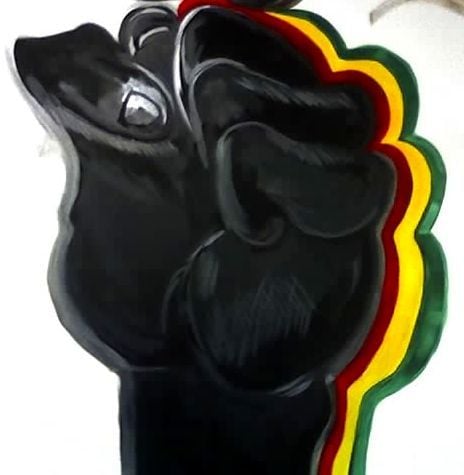
ABBOTT, Diane
Born 27th September 1953 in Paddington - London
She was the first ever black woman ever elected into the House of Commons and remained the only one until she was joined by Oona King (Oona lost her seat in 2005). Diane served briefly as the first female black officer in Association of Cinematographers Television and Allied Technicians, is a committed social and political activist, President of Black Women Mean Business and continues to strive.
ABBOTT, Wilson
Born 1801 in Richmond - Virginia
After an apprenticeship as a carpenter, he served briefly on a Mississippi steamer before opening a grocery store in Mobile, Alabama. Driven form his prosperous store by envious whites, he emigrated in 1835 to Toronto where he became a thriving real estate broker. By 1870 he owned several properties and supported the uprising of 1837 before helping found the Coloured Wesleyan Methodist Church. He died in 1876 after seeing his son become the first Canadian born black to qualify as a doctor and receive a license to practise in Toronto.
ABEDI, Sheikh
Born 1924 in Ujiji - Tanganyika
This noted swahili poet was elected to Parliament as served as Mayor of Dar es SALAAM. In 1963 he became minister of Justice in Tanzania but sadly died on 15th October 1964.
ABIOLA, Moshood
Born 24th August 1937 in Abeokuta
He was one of the wealthiest magnates of African History. After a scholarship took him to Scotland to study accounting, he returned to serve as an accountant for ITT Nigeria in 1968. By 1971 he was chief executive and chairman making a private fortune purchasing an airline, a publishing house, a newspaper syndicate (along with 21 wives). He made large contributions to building schools, and other philanthropic causes and was elected president of Nigeria in 1993. However the military junta annulled the elections and imprisoned Abiola in 1994. He remained in prison until 7th July 1998 where he died of strange circumstances.
ABRAHAMS, Peter
Born 19th March 1919 in Vrededorp - near Johannesburg South Africa
He became an outstanding novelist, short-story writer and journalist. He immigrated to England in 1939 and worked for the London Observer while writing several radio clips for BBC's Third Programme during the 1950's. He then settled in Jamaica writing numerous books including Dark Testament and Song of the City, establishing him as one of the leading African Novelists. Wild Conquest was perhaps his finest drawing attention to harsh realities of black life in South Africa during the days of the Apartheid.
ADAMS, Grantley
Born in 28th April 1988 in Barbados
He became of one of the most successful lawyers in Barbados playing a prominent role in the formation of the Barbados Workers Unions and Labour Party, also being instrumental in bringing about a number of social, economic and constitutional reforms. He overhauled the unfair fiscal system that had left the burden of taxation on the poorest sections of the society, and initiated such useful reforms as workmen's compensation and a peasant loan system before resigning in 1958 to lead the British West Indian Federation. He was Knighted in 1957 however died on 28th November 1971. In April 1998

ADAMS, Leonard
Born in Trinidad
He is internationally known for his contributions to study of the 18th Century French Literature. He taught for 30years before being elevated to the status of Professor Emeritus when he retired. In addition to numerous scholarly articles he wrote Coyer and the Enlightenment, was an accomplished musician, won prizes for his singing and has given recitals in several Caribbean Islands .
ADAMS, Tom
Born 14th September 1931 in Barbados.
After a scholarship he proceeded to study law in England. He worked as a freelance broadcaster and producer for the BBC, ITV before returning to Barbados in 1962. He was elected leader of the Barbados Labour Party, then became Prime Minister in 1976 and was still in office when he died suddenly in 1981. He is remembered as one of the most eloquent of all Barbadian parliamentary debaters.
ADJETEY, Cornelius
Born in 1893 Ghana
Cornelius Frederick Adjetey was the first Ghanaian Martyr to the cause of national independence. He was killed when British troops opened fire on a peaceful demonstration, and event that hastened the British from the Gold Coast as it was then called. He fought in both World Wars. His death caused widespread rioting and looting in Accra and forced the government to investigate fully the cause of the disturbance, and Adjetey and his 2 slain comrades had a monument erected in their memory where they had fallen .
AFFAWAR WABRA IYASUS
Born 10th July 1868 in Ethiopia
Affawar was a noted artist, poet, novelist, and diplomat. His reputation for tact, diplomacy, and scholarship led him to president of Special Court established to settle disputes between Ethiopian nationalists and foreigners. During the Italian occupation (1935 - 1941) he was promoted to the highest position in the Ethiopian Court system. However his well known sympathy for the Italians led to his political downfall after 1941. He died in exile on 25th September 1947.
AFRICAN METHODIST EPISCOPAL CHURCH
This was the very first organisation of any kind organised by American blacks. It began in 1786 as a small prayer band in St George's Church in Philadelphia, Pennsylvania. It's Founder was Richard Allen (1760 - 1831). It inspired the appearance of several independant black methodist churches all across the us. Many local churches eventually became affiliated with the African Methodist Episcopal Church which controlled about 4500 branched by early 1970's when its total membership exceeded 1million.
AFRICAN UNION
Established in 2001 the AF is an international organisation consisting of 53 African member states. It is an amalgamation of the older Organisation of African Unity and the African Economic Community. The purpose of the union is to help secure Africa's democact, human rights and sustainable economy, especially by bringing an end to the ethnic conflicts and creating an effective common market.
AGANAW ENGEDA
Born 1903 Ehthiopia
He was a artist and poet who decorated the important Qachane Madhani Alam and the Ethiopian Parliament at Addid Ababa where he also founded the first Art School. He died in an automobile accident in 1948.
AILEY, Alvin
Born 5th January 1931 in Roger - Texas
He was an innovative dancer, director and choreographer who helped establish modern dance as a popular art form in the US. He died on 1st December 1989 but many of his 79 works are still being performed by such companies as the American Ballet Theatre, the Paris Opera Ballet, the English National Ballet and the Royal Danish Ballet.
AKANDE, Zanana
Born 1937 in Toronto
She was the first black woman to be elected to the Ontario provincial parliament. She was involved in several committees and was largely instrumental in establishing the programme which created over 5000 summer jobs for youths across the province between 1991 - 1994. After retirement from politics, she was elected president of Toronto's Urban Alliance on Race Relations.
AKAR, John Joseph
Born 20th May 1927 in Rotifunk - Sierra Leone
A noted actor, broadcaster, diplomat, journalist and author. He composed Sierra Leone's national anthem in 1961, organised and directed the National Dance Troupe and was appointed Ambassador to United States in 1969 but resigned when his country declared itself republic in 1971.
ALDRIDGE, Ira
Born 24th July 1807
TBC - lots more to follow.
© 2014 Majority NOT Minority Ltd - All rights reserved.
No republication of this material, in any form or medium, is permitted without express permission of the author